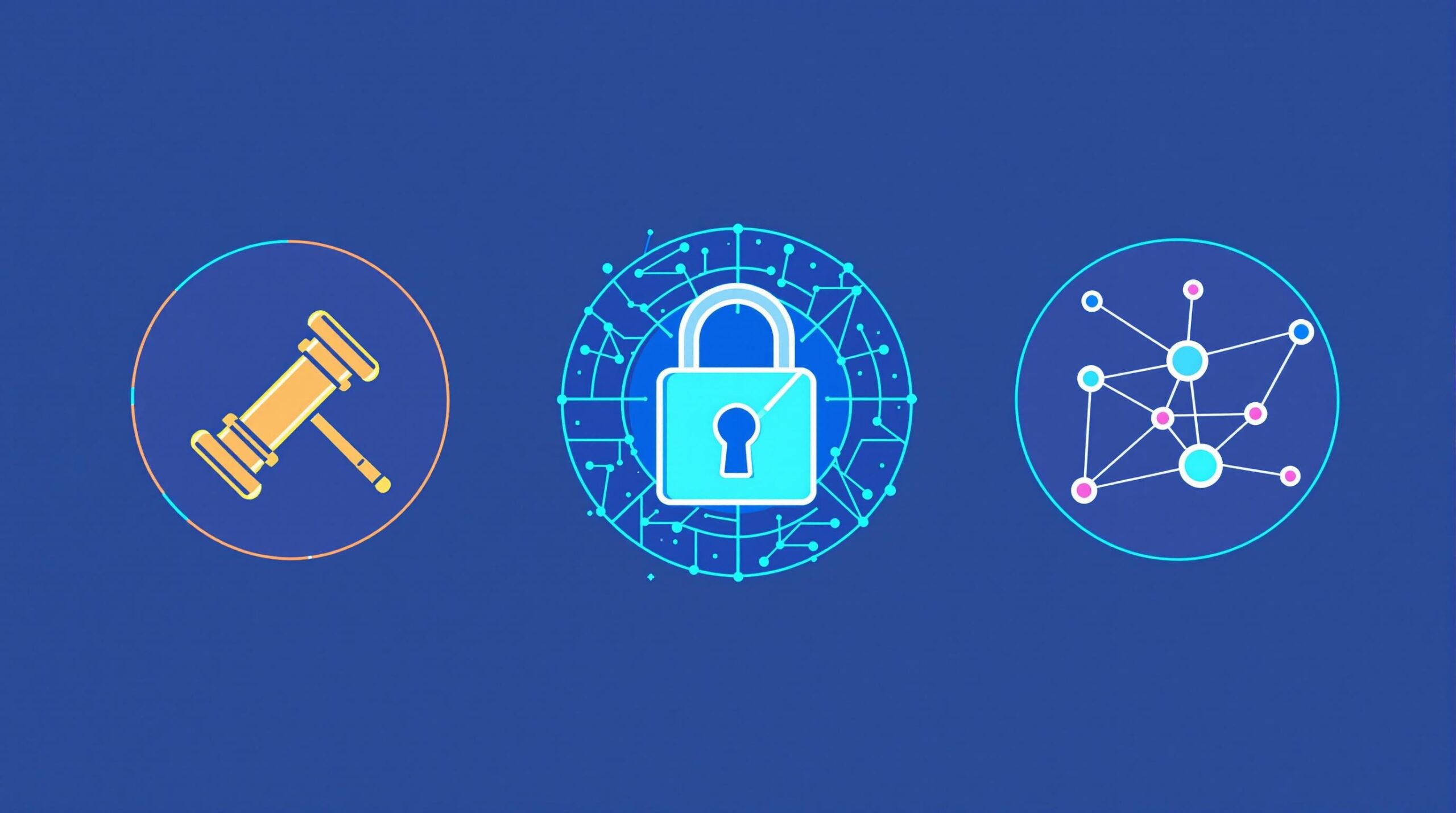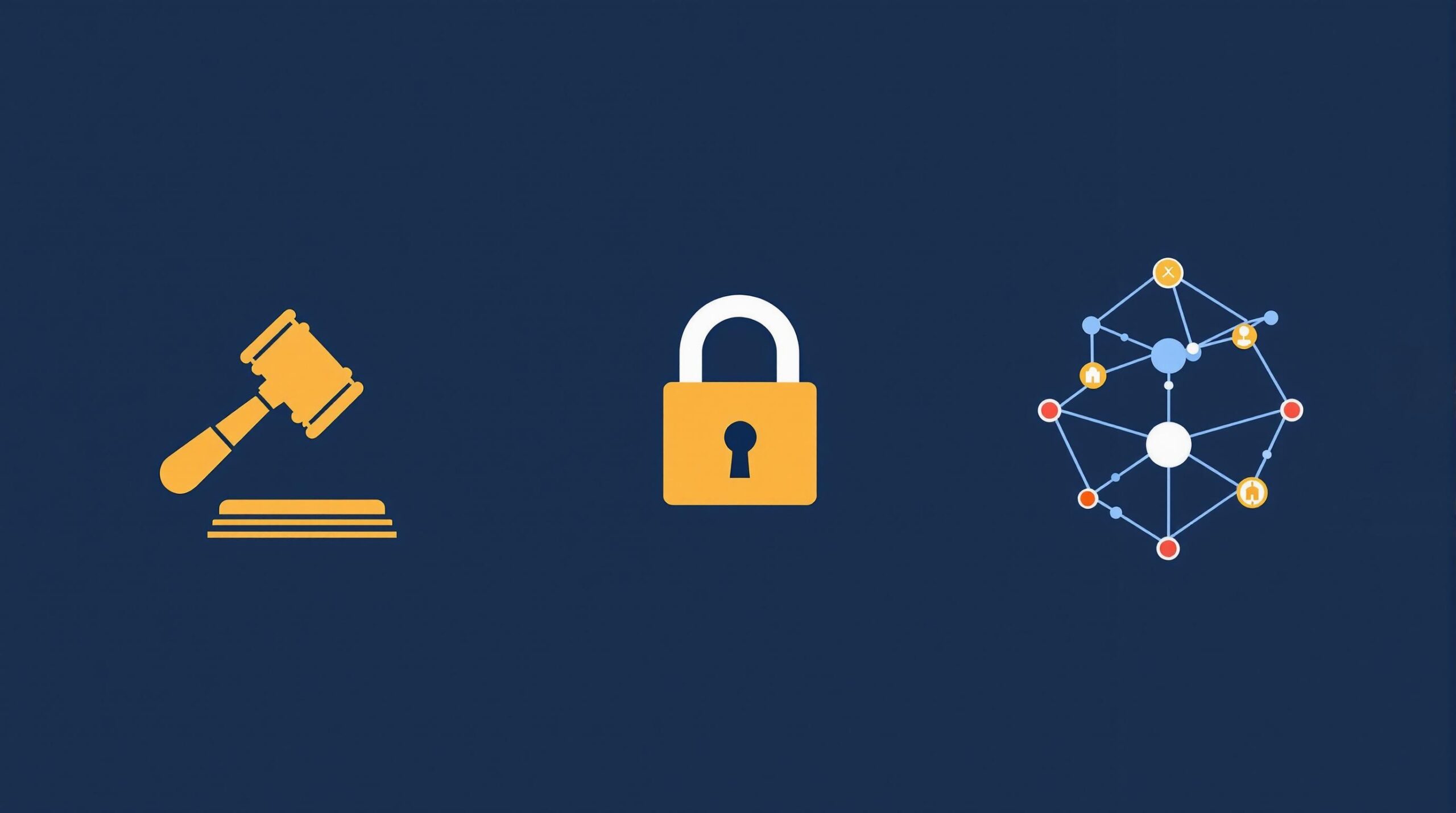The Foundations of Smart Contracts and Automation
Smart contracts are at the heart of the digital revolution in Africa, offering a transformative way to automate agreements without the need for intermediaries. At Jara, we believe that smart contracts hold immense potential by providing trustless, automated solutions that are essential for modern businesses.
Introduction to Smart Contracts
Have you ever wondered how smart contracts work and where they originated? Smart contracts are self-executing contracts with the terms of the agreement directly written into lines of code. They were first conceptualized in 1994 by Nick Szabo, a cryptographer who envisioned a way to create digital protocols to enforce contracts without human intervention, thus minimizing fraud and ambiguity.
What is a smart contract? A smart contract is a self-executing contract with the agreement terms directly embedded in computer code, eliminating the need for intermediaries.
In the realm of blockchain technology, smart contracts gained prominence with the advent of Ethereum, where these contracts became central to the network’s operation. Unlike traditional contracts, which require third-party enforcement, smart contracts automatically execute and enforce themselves upon the fulfillment of predetermined criteria. This technology leverages the decentralized nature of blockchain, ensuring enhanced security, transparency, and efficiency.
“Smart contracts are like digital vending machines—they automatically dispense the agreed item when the conditions are met, ensuring every party gets their due without disputes.”
At Jara, we leverage smart contracts within our ecosystem to enable investments in tokenized real-world assets, such as large-scale infrastructure projects. These contracts help overcome the inefficiencies found in traditional financial dealings, facilitating faster and more reliable transactions. With Africa’s digital economy growing, smart contracts present an opportunity to advance financial inclusion, offering a robust foundation for bridging global capital with African assets.
Smart contracts revolutionize business automation, particularly by reducing operational costs and avoiding common issues associated with manual processing. By implementing smart contracts, African businesses can efficiently streamline operations and maintain competitiveness in an increasingly digital global economy.
The future of contracts lies in automation, and smart contracts represent the forefront of this evolution, paving the way for a decentralized financial system.
The use of smart contracts extends beyond mere financial transactions. They are pivotal in decentralized finance (DeFi), where they play a crucial role in enabling a wide range of financial services previously dominated by centralized institutions. This shift toward DeFi aligns with Jara’s mission to democratize finance in Africa.
- Key Advantage: By eliminating intermediaries, smart contracts reduce the risk of manipulation and errors, enhancing the credibility of automated agreements.
- Integration with Blockchain: Blockchain technology supports the secure execution of smart contracts, ensuring that data is transparent and immutable.
- Automated Compliance: Programmable logic allows smart contracts to automatically enforce compliance with local and international regulations.
As we delve deeper into the potential of smart contracts, it’s crucial to understand how they contribute to reshaping various industries. Whether it’s real estate, finance, or supply chain management, the power of automated, trustless agreements continues to unlock new possibilities for innovation and efficiency.
To explore how smart contracts can legally replace traditional contracts and the implications for businesses, visit our detailed analysis on the legal binding of smart contracts.
Benefits of Blockchain-enabled Smart Contracts in Automation
The introduction of smart contracts has revolutionized the way business processes are automated. By leveraging blockchain technology, these digital contracts provide a multitude of benefits that enhance transparency, increase security, and improve efficiency across various industries in Africa and globally. But what exactly do these benefits entail, and how do they specifically apply to automation?
Efficiency and Transparency
One of the key advantages of deploying smart contracts in automation is the ability to minimize errors and enable real-time auditability. This transparency significantly contributes to streamlined business operations. How do smart contracts achieve this? By operating on decentralized networks like Ethereum or Solana, smart contracts eliminate the need for intermediaries, thereby reducing the chances of human error and speeding up processes.
- Real-time Auditing: Smart contracts are stored on a blockchain, ensuring that every transaction is permanent and traceable. This allows for immediate audit trails that can be accessed by all parties involved.
- Error Reduction: Traditional contracts often involve lengthy processes and multiple parties, increasing the margin for error. With smart contracts, once terms are set and encrypted on the blockchain, they cannot be altered or misunderstood.
- Cost Efficiency: The reduction in intermediary involvement and the automation of processes lower transaction costs significantly. This is particularly beneficial in sectors such as supply chain management, where efficiency is paramount.
- Automation of Payments: By using smart contracts, businesses can ensure that payments are automatically triggered when specific conditions are met, removing the need for manual intervention.
In the context of the African market, where financial inclusion is a focal point for growth, the implementation of smart contracts can bridge significant gaps. Smart contract use cases in Africa are burgeoning, impacting not just local economies but also capturing global interest.
Smart contracts enhance automation by providing transparency, security, and efficiency, minimizing errors, and enabling real-time auditability.
Furthermore, the role of smart contracts extends to industries such as finance, insurance, and supply chain, empowering them to operate more transparently and securely. For instance, smart contracts in decentralized finance (DeFi) are transforming how financial transactions are executed, reducing fraud, and improving trust through immutable records.
Jara recognizes the power of this technology in creating a transparent and efficient digital asset economy in Africa. By enabling transactions on its proprietary blockchain, Jara is not only driving financial inclusion but is also participating in the global transformation of digital asset management. With projects like the Lagos airport tokenization, Jara utilizes smart contracts to bring transparency and efficiency to large-scale infrastructure investments.
As Africa continues to embrace digital transformation, the use of smart contracts represents not just a technological advancement but also an essential tool for economic empowerment and growth. The potential for smart contracts to redefine how contracts are executed will ensure that African markets can leapfrog into a brighter, more technologically advanced future.

Challenges and Limitations of Smart Contracts for Automation
As promising as smart contracts are, they come with their own set of challenges and limitations. Organizations attempting to implement smart contracts into their automation workflows need to carefully consider these hurdles to ensure seamless integration and operation. Here, we delve into the primary obstacles faced by entities adopting smart contracts for automation purposes.
Technical and Legal Barriers
One of the most significant challenges in adopting smart contracts is their technical complexity. Smart contracts, built on blockchain technology, require a robust understanding of programming, cryptography, and blockchain infrastructure. This complexity often necessitates hiring specialists, which can be costly and time-consuming for organizations looking to utilize smart contracts effectively. Furthermore, since blockchain technology is still evolving, standardization poses another technical barrier.
What are smart contracts? Smart contracts are self-executing contracts with the terms of the agreement directly written into lines of code. They eliminate the need for intermediaries and enable trustless transactions.
From a legal standpoint, the enforceability of smart contracts remains a grey area. Traditional contracts are well-understood in legal terms, but smart contracts, which operate automatically upon meeting certain conditions, often lack a clear legal framework. Many jurisdictions are still grappling with the concepts introduced by blockchain technology, creating uncertainty about legally binding smart contracts. This lack of legal clarity can deter businesses from fully embracing smart contract technology.
- Technical Complexity: Adopting smart contracts demands expertise in blockchain technology—a significant technological hurdle for many organizations.
- Standardization Issues: The lack of a uniform standard across various blockchain platforms leads to interoperability challenges.
- Legal Enforceability: Current laws do not fully recognize smart contracts, causing legal ambiguity and potential risks for businesses.
In addition to these primary barriers, security concerns also loom large. While blockchain technology is inherently secure, vulnerabilities in smart contract code can lead to exploits and financial losses. Large-scale security audits are necessary to mitigate these risks, but they add to the overall implementation cost. This financial consideration can be daunting for industries disrupted by smart contracts and looking to harness their potential.
“Your organization’s journey into smart contracts must consider both technical capability and legal frameworks to succeed in this evolving landscape.” – An insightful thought for companies exploring blockchain possibilities.
Overall, while smart contracts offer revolutionary potential for automating agreements and processes, organizations must carefully weigh these challenges against the potential benefits. By addressing technical proficiency, understanding legal landscapes, and implementing robust security measures, companies can position themselves better to capitalize on smart contract technology.
Future Trends in Smart Contract Automation
The landscape of smart contract automation is evolving rapidly, offering a glimpse into a future where technology reshapes industries beyond recognition. As we stand on the brink of innovation, it’s fascinating to envision how smart contracts will drive automation in various sectors. From industry disruptions to increased transparency, the possibilities are endless. But what lies ahead?
The future of smart contracts is intertwined with key advancements in emerging technologies, challenging traditional systems and creating unparalleled opportunities for efficiency and innovation.
Innovations and Integrations
One of the most significant future trends is the integration of smart contracts with emerging technologies like the Internet of Things (IoT) and artificial intelligence (AI). Imagine a world where your smart home devices, powered by AI-driven smart contracts, autonomously manage utility bills, ensuring you only pay for what you consume. As AI enhances decision-making capabilities, smart contracts could transform legal agreements from static documents into dynamic solutions that respond to changing data and circumstances in real-time.
- Augmented Automation: The fusion of AI and smart contracts might enable systems to self-execute and self-adjust, minimizing human intervention in repetitive tasks. This synergy could amplify their role in supply chain transparency, making it easier to track products and eliminate fraud.
- IoT Integration: IoT devices could trigger smart contracts when specific conditions are met, such as temperature changes or inventory levels, enhancing logistics and operational efficiency. It’s a vision of a connected ecosystem where transactions and processes occur effortlessly.
These integrations don’t just promise increased efficiency—they represent a monumental shift towards a more connected and autonomous future. However, with great innovation comes challenges like security and scalability, aspects where smart contracts need to evolve to sustain this growth.
Integrating AI with smart contracts can potentially minimize human errors, drive down costs, and enhance the precision of automated processes, ultimately leading to robust, trustless systems.
As we peer into the future, understanding these trends becomes essential not only for businesses looking to leverage smart contracts for reducing fraud but also for innovators poised to drive the next wave of technological advancement. The synergy of these technologies could redefine the essence of contracts, making autonomy and automation the new norms.

How do smart contracts enable trustless agreements?
Smart contracts enable trustless agreements by utilizing blockchain technology. They automatically execute and enforce terms once pre-set conditions are met, eliminating the need for intermediaries. The decentralized nature of blockchains provides transparency and security, ensuring that all parties can verify the actions performed.
What industries benefit most from smart contract automation?
Industries like finance, supply chain, healthcare, and real estate gain the most from smart contract automation. Smart contracts streamline processes by ensuring efficient, error-free, and secure transactions, which is crucial for industries dealing with high volumes of data and transactions.
Are smart contracts legally binding?
Whether smart contracts are legally binding depends on the jurisdiction and the specific legal criteria they meet. While they ensure automation and reduce manual intervention, their enforceability can vary based on how they align with traditional legal frameworks.
What security challenges do smart contracts face?
Smart contracts face security challenges such as coding errors, unforeseen vulnerabilities, and exploitation risks. It’s crucial to conduct security audits and thorough testing to minimize these risks and ensure functional integrity.

Related Practice Areas
Explore additional pages related to smart contracts and automation that might interest you:
Hear From Our Satisfied Clients
Serving our Smart Contracts & Automation clients with unwavering dedication, we put our heart and soul into every case. The positive feedback we receive is a reflection of our commitment to excellence and client satisfaction.

Partner with Jara to Transform Your Business with Smart Contracts
At Jara, we’re dedicated to bridging global capital to African assets through cutting-edge smart contracts and automation technologies. Our team of experts is here to help you navigate the complexities of blockchain technology and unlock the full potential of trustless agreements.
Take the first step towards a more efficient and transparent business model.
Don’t just take our word for it—they’ve been recognized among the top innovators in Smart Contracts & Automation.
- Top Blockchain Innovators: Highlighted by Blockchain Tech Awards for advancements in smart contract development (2023) View Award
- Leading Smart Contract Firm: Named one of the top firms by Smart Tech Insights for innovation in automation (2023) View Award
- Trailblazers in Automation: Recognized by Future Tech Magazine for excellence in integrating blockchain with IoT and AI (2023) View Award
- Best in Class – Automation: Listed among the best for smart contract solutions by Tech Innovators (2023) View Award
- Innovative Tech Leader: Identified by Global Tech Forum for contributions to automation technology (2023) View Award
Your business transformation awaits. Download the Jara app on Android or iPhone today and explore how our team’s expertise can help your organization harness the power of smart contracts.
Chinyere “Chi” Nnadi Bio
Founder and CEO, Jara | Blockchain Automation Specialist
Content Reviewed by Chi Nnadi and his Content Team. Chi is an experienced entrepreneur dedicated to transforming Africa’s financial ecosystem through blockchain technology. As Founder and CEO of Jara, he builds enterprise-grade infrastructure converting illiquid African assets into globally accessible digital tokens. With his proprietary Layer-2 blockchain technology and expertise in smart contract automation, Chi bridges the gap between global investors and Africa’s growing digital asset market.

















